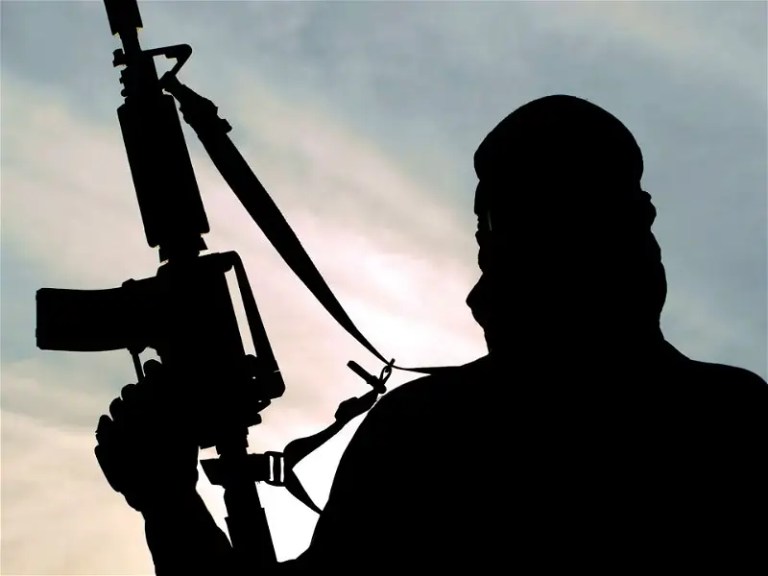Achiever's Profile
The Imperative for human development in Africa, by Rauf Aregbesola
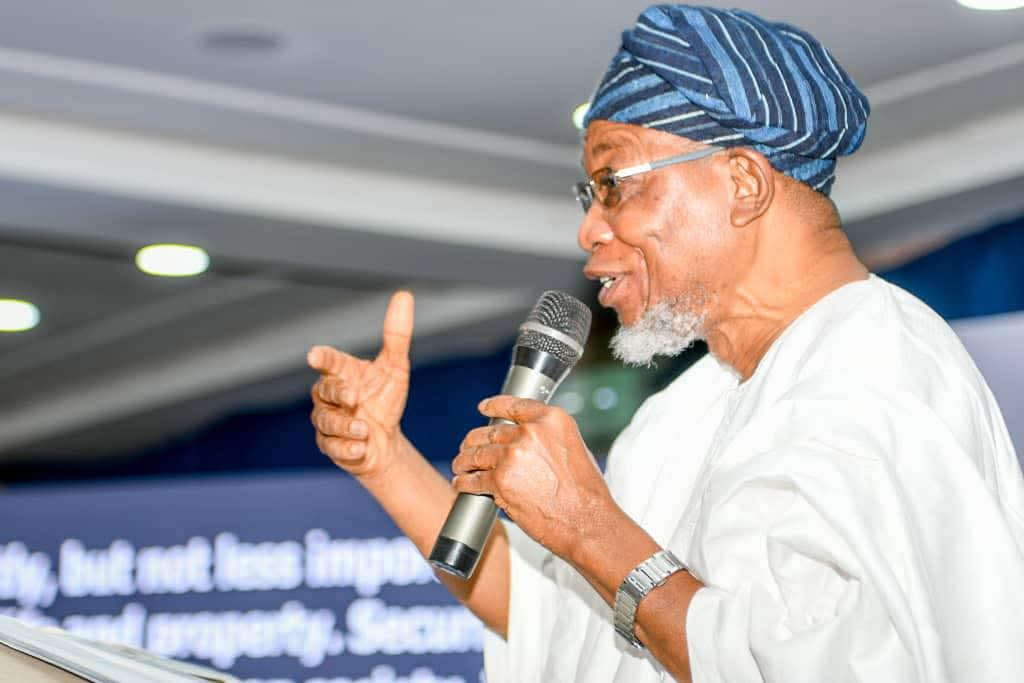
KEYNOTE ADDRESS DELIVERED BY OGBENI RAUF AREGBESOLA AT THE 2025 DISTRICT CONFERENCE OF THE ROTARY INTERNATIONAL DISTRICT 9126 HELD AT ADMUS HOTEL AND SUITES, AKODA, EDE, MAY 8, 2025
Protocols,
THE IMPERATIVE FOR HUMAN DEVELOPMENT IN AFRICA
I must thank the Governor and other members of Rotary International District 9126 comprising the Rotary Clubs in Osun, Oyo, Ekiti, Ondo Kwara, Kogi and Niger States for the kind invitation to the 2025 District Conference.
Rotary is the foremost civic and philanthropic organisation renowned all over the world and especially in Nigeria over the ages. Rotary has spearheaded the campaign for the eradication of polio and other debilitating diseases across the globe. It has also been involved in the education and health sectors and can be said to be significant to human progress since the 20th Century.
Rotary was also the cradle of the middle class in Nigeria in the 1970s and 80s, giving them the platform for social identity, self-expression, philanthropy and humanism, before the middle class was wiped out altogether in the country.
It is encouraging and gratifying and I must commend the Governor that in spite of the vicissitudes visited upon the country all these years, Rotary is still thriving and has not slowed down in humanitarian activities and philanthropic acts in Nigeria.
DEVELOPMENT IN CONTEXT
I have chosen to talk on the challenges of development in Africa and my concern is actually on the sub-Saharan Africa primarily occupied by black people because Rotary has been pivotal to human development across the globe.
One of the dictionary definitions of development is a process of growth and progress by improving on what obtained before. Cambridge dictionary describes development as the process in which someone or something grows or changes and becomes more advanced.
What is common here is that there is a process and process takes time – long or short. Secondly, there must be an improvement on a previous state. This concept of development will apply to a child, animal, plant, any organism or a nation.
A child begins as the pairing of two single cells which fused to become one and then begins to multiply until it emerged as an organism, ultimately assuming human form. But it is born tiny and weighs on the average 3.2 kilogrammes at birth. But at 10 years, he now weighs 32 kilogrammes on the average and continues to grow.
Seeing the difference from when it was born at 3.2 kilogrammes to 32 kilogrammes, we can say the child has developed or is developing.
The tallest and the biggest tree, we all know, starts from a tiny (almost weightless) seed which germinates and then grows to that giant of a tree.
Those in animal husbandry have expectations of development for their animals. Ostrich, the biggest bird, begins as an egg which then hatches and grows up to 145 kilogrammes. If a broiler fowl weighs half the expected weight after eight weeks when it is due for harvesting, there will be panic as they will say it is not developing.
A nation, region, a people and even whole continent are also subject to the same process. This is how the concept of development comes to discourse.
For the avoidance of doubt, there is no single acceptable definition of development from political-economy perspective. For instance, the Indian Nobel Laureate in Economics, Amartya Sen describes development as the ‘Process of expanding the freedoms the people enjoy’. In the 1960s and 70s, development in Europe used to be measured, among other things, by the number of households with television and telephones.
However, political economists and developmentalists categorised nations and regions into developed and developing. While indeed some nations are steadily climbing the development ladder, ‘developing’ as often used to describe nations in sub-Saharan Africa is actually a euphemism for underdeveloped.
The biggest challenge in Africa is development. According to the World Bank, in 2022, 460 million people in Sub-Saharan Africa were living in extreme poverty. In 2009, 22 out of the 24 nations identified as having low human development on the United Nations Human Development Index are in Sub-Saharan Africa. According to the World Bank data, only Seychelles has a GDP per capita above $10,000.
Access to decent housing, healthcare, quality education, electricity and safe waters are poorest in Africa, compared to the rest of the world. In Sweden, for instance. there are 70.3 doctors per 1,000 people. But in Africa, the figure is a staggering 2.6 doctors per 10,000 people.
In 2023, adult literacy rate in Africa was 66.9 percent. In Nigeria within the same period, it was 66 percent, meaning Nigeria is below Africa’s average. But the literacy rate across Europe is 99 per cent, with countries like Britain, Germany, Sweden and France having almost 100 percent adult literacy.
Africa is also the hotbed of conflicts, from the northernmost part to the southernmost tip, consuming a huge number of human and material resources that should have been used for the development of the land and the people.
In 2023, an estimated 330,000 people were killed in 35 conflicts across Africa, including in Nigeria, Mali, Burkina Faso, Somalia, Sudan, Congo and Ethiopia among others, with over 40 million people displaced. This is also at the annual cost of $18 billion.
These conflicts are a huge break to development in the continent. It is practically impossible to concentrate on any meaningful development when the continent’s huge human and material resources are dedicated to prosecuting these meaningless wars.
But for the purpose of this paper, I will take development to mean the enhancement of human capacity for efficient production. For me, development, though good, enjoyable and admirable in enhanced infrastructure and impressive environment, as seen in the good things of life, are actually its bye products. Development must be in humans. It is often said, though as a sardonic joke, that if we exchange all the people in Nigeria with the people in Britain, in 50 years, the British people would have turned Nigeria to Britain and the Nigerians would have turned Britain to Nigeria. But I digress. I am just kidding.
The point I am making is that development must first take place in humans before it can translate into the changes in their environment and their living condition.
What then are the transformations that must take place in humans that would then translate to changes around them which we call development?
The primary agent of change is education. See the human mind like a computer. The operating system and the other programs will enable the user to optimise the system and derive maximum benefit from it.
Man is born tabula rasa. It is a clean slate. Anthropologists have demonstrated that a man without education and culture will live like any wild animal. All the education, learning and culture we acquire as members of the human community is to enable us cultivate our intellect and optimise our potentials as humans.
Education is in many forms. Environmental awareness is the foremost education every creature must acquire. We must know the difference between an eel and a rattlesnake, though they look alike, in order to stay alive. Farmers must know the seasons and times in order to optimise planting.
Then there is knowledge of ideas. Ideas rule the world. Every innovation that has moved humanity forward begins as an idea. Understanding gravity and how to supersede it is what gave us the airplane. Understanding motion is what gave up guns and other projectiles. The invention of the wheel and how to channel the power of motion gave us engines and everything we power with it. With electromagnetic induction, we can use motion to generate electricity and vice versa.
Then more importantly, engineering is the application of scientific and mathematical principles to design, build and maintain structures, machines and system. Engineering therefore is how to do things and make things work.
There is also skill acquisition and technical education. The principles and knowhow of the greatest ideas and innovations have to be domesticated and taught at the basest level. A painter, though bereft of the latest innovation in paint making technology, will still be taught how to beautify buildings with the liquid wonders of paint. Automobile mechanics have to be taught how to disassemble and reassemble the car engine, the invention of geniuses.
Welders will bring to reality the most astute engineering design with rods and pans while bricklayers will build that architectural masterpiece designed by a first class architect, even when they are at sea on the mathematical basis of a pillar or beam.
Artisans at all levels are actually the nation builders because they are the crowning glory of the best a nation could produce. While less than one percent of the population would be in innovation and idea generation, skilled workmen are the foot soldiers that convert ideas into reality. This is the level at which most of the population are involved in production.
Therefore, any nation that does not equip majority of its citizens with skill acquisition and technical education will be backward and chronically underdeveloped.
Not less important, but rather the anchor for all these other forms of education is culture and moral education. Make no mistake about it. A humanist will use atomic energy to provide electricity and water but a rogue leader could wipe out humanity with it. Indeed, a major global concern is on how to prevent (at all cost) nuclear weapons from falling into the hands of rogue leaders.
The policeman and a soldier will protect the people and the land with their guns but a thief and a brigand will rob, rape, kill the people and seize the land with guns. Without moral underpinnings, an educated man is therefore more dangerous to the society.
Moral education is what imbues a man with virtue, making him to realise that he exists not just for himself but for the society, for the development of fellow men and upliftment of humanity. It is what makes a man live with a purpose – not pursuing self-aggrandisement, self-gratification and unbridled hedonism. Those who made the discoveries that revolutionised our world live purposefully, not for themselves, but pursue goals that would positively impact the rest of humanity. Interestingly, this is what Rotary is all about.
The next human development is health. This, for our purpose, will include nutrition. It has been established for instance that a school-going child fed nutritious food (at least once a day) and regularly dewormed will be healthy, confident and his cognitive abilities will be well developed.
Adults, not less, need to feed regularly and adequately. Indeed, the first need of human is food. Humans can relatively cope with the absence of other needs, including clothes and shelter, but not without food.
A well balanced and adequate food would ordinarily take care of most diseases. Well-fed expectant mothers will more likely give birth to healthy babies than women who are not well fed. The only problem with food is if it is taken in excess.
Without good and adequate nutrition, there will be other crises of health, crimes and social upheavals. In human history, it has also been established that cannibalism and war emerge in periods of food shortage. The propensity for peace and human progress therefore is high when there is food security than in periods of hunger and malnutrition.
Provision of adequate healthcare is a sine qua non in modern human society. New and frightening health challenges have emerged like HIV/AIDS, Ebola, Covid, cancers, Diabetes and some strains of microbes that the means to address them must be available or there will be huge casualties at great cost. Increasingly mental health challenges have ballooned, such that except there are drugs, medical personnel and facilities to address them, the toll would be huge.
Lastly, but not less important, is security for life and property. Security is the first condition of human society. It is the basis for the emergence of society and order from the chaos and the disorder of the state of nature. Where there is insecurity, society stands on the brink of disintegration. In a state of insecurity, no development can take place. No culture can thrive. In places going through conflicts, agriculture and other economic activities will be arrested, in addition to other human and environmental consequences. According to the British philosopher, Thomas Hobbes, ‘life will be solitary, nasty, brutish and short.’
The challenges of development in Africa therefore is the challenge of human development.
AFRICA, A SAD STORY OF UNDERDEVELOPMENT
The first factor in African underdevelopment is the colonial legacy of slavery, colonialism and Western capitalist exploitation. An estimated 15 million people were forcibly taken away as slaves from Africa during the slavery era between the 16th and 19th century. This figure may not appear too significant now, but in the 15th century, the entire population of Africa was estimated to be 55 million. That’s about 27 percent of the population – more than a quarter or one out of every four persons.
This disarticulated their economies and demographic distribution since the target of slave raiders were the able bodied and those within the productive years, leaving behind the aged, the weak and the children – all dependants. So, for nearly three centuries, development was arrested in Africa.
This took them almost a century to recalibrate their demography by which time they were in the throes of colonial domination.
The second and by far more important is governance – poor leadership, corruption and failure to build institutions. They are interrelated and mutually reinforcing. Therefore what we have had in Africa since independence is crisis of governance.
African leaders lack empathy. For most part, they are self-serving, vacuous and vainglorious, infernally trapped in primitive accumulation.
Leadership in Africa is like the tapeworm. When one head is removed, what comes out is another head, exactly same of same.
This makes the African countries vulnerable in a seemingly calm but ravenously wild global system that preys on the weak, disorganised and less strategic nations through debt trap, subversion and mindless and callous exploitation.
This is the point we are now. We have to break this vicious cycle of the emergence of self-serving leaders who lack the conception of the public good. Irrespective of the external impulse, all the armed conflicts in Africa are at the behest of the ruinous and self-serving leaders.
The continent of Africa is at a point where it must through democratic revolution prop us its best into leadership positions – political, economic and social – and put an end to the misery of its worst emerging as leaders. We must produce leaders that will place premium value on human lives and make the pursuit of human development a guiding principle of state.
We know this is possible because Africans thrive and excel when they take up leadership positions outside the continent. We only need to be purposeful in throwing up our best to leadership positions in the continent.
They must learn from European history that Europe began the march to continental development and global leadership when the princes stopped their self-seeking and self-aggrandisement wars and started working for peace and development of their people.
MY EXPERIENCE
As most of us here probably knew, I was privileged to be governor of Osun for two terms between 2010 and 2018. Our administration pursued human development to the fullest.
Education, especially was our priority. Our administration constructed state of the art 20 Elementary Schools, 22 Middle Schools and 11 High Schools.
In addition to the new schools, we constructed 3,685 new classrooms across all school levels, expanding access to education for over 184,000 students in Osun. In addition, we renovated 410 classrooms, including 139 in 39 elementary schools, 271 in 36 middle schools and completely renovated nine high schools.
In addition, we constructed toilets in 160 schools to ensure hygiene and the dignity of the students; we distributed 62,922 new sets of furniture to improve the learning environment in schools; we procured and distributed 45 brand new school buses to provide free and safe transportation for pupils; and fenced 20 old schools to enhance security and safe learning environment.
We also recruited 12,000 teachers for high schools and 3,230 teachers for elementary schools.
We also served 317 million hot plates of nutritious meals to 254,250 pupils in elementary schools between 2012 and 2018.
We introduce calisthenics to schools, which also incorporated private schools into the scheme.
Under our watch, Osun’s performance in external examinations shot up from 15 percent pass we inherited to 46 percent.
The 11 high schools, by our projection, would each graduate 11,000 students every year. In 10 years, they would have turned out 110,000 first rate students. In 50 years, that would be 550,000 world beaters, occupying strategic positions nationally and globally.
Our administration took care of the aged and vulnerable members of the society. In massive empowerment of artisans and traders, N3.5 billion were provided as interest free loans in our micro-credit agency. We also instituted a grooming programme at the grassroots under which we train women in vocations and empower them to stand on their own. The programme had 30,000 clients and distributed loans in excess of N1.7 billion.
We established a youth engagement programme in the first 100 days of our administration for public works. Through this we engaged 60,000 youths in three tranches and reduced unemployment by 65 percent in Osun. During our tenure, Osun had the second least unemployment rate in Nigeria.
We also established agencies for taking care of the aged and the mentally challenged. Interestingly, all the destitute and mentally challenged were rehabilitated and reunited with their families because they all got well, without exemption, all of them.
In summary, when there is human development, their creative energy and productivity will be unleashed. They will create wealth and pay tax and create a positive cycle that will lead to individual and national greatness.
This is a well established pattern in human history. I therefore urge Rotary to developed more focussed and deliberate programmes for human development in order to take Africa from its present supine and underdeveloped status to join the great march of human history.
Rotary seeks to be apolitical, a good wish in societies where fundamentals of freedom, democracy and justice are already established.
In climes where these basics are in ferment, all men of goodwill must be mobilised for their construction.
It is therefore a duty for all conscious patriots to demand for free, fair, transparent and reliable electoral system, a judiciary that dispenses justice and the administration of criminal justice that is equitable, police that serves and protects, prisons that reforms, etc.
With these fully in place, we can therefore be assured of development.
Once again, let me thank you most sincerely for inviting me here. May your organisation continue to grow in leaps and bounds.
I thank you all for your kind attention.
-
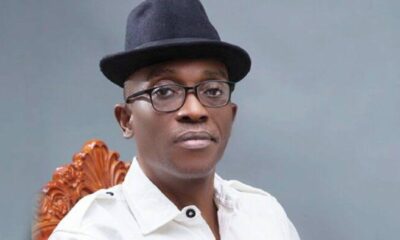
 National News1 day ago
National News1 day agoINEC’s exclusion of Julius Abure praised as victory for democratic accountability
-

 Politics2 days ago
Politics2 days agoPDP Chairman, Damagun’s spokesperson resigns
-
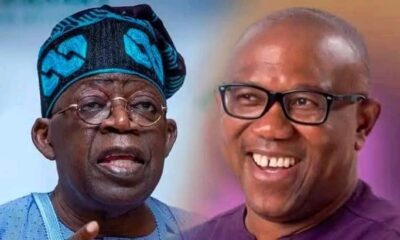
 Politics2 days ago
Politics2 days agoObi slams Tinubu over St Lucia trip
-

 Opinion1 day ago
Opinion1 day agoOsun APC guber ticket: Aspirants emerge, battle lines drawn
-

 Politics1 day ago
Politics1 day ago2027: We’re ready to unseat APC – PDP
-

 National News20 hours ago
National News20 hours agoPresidency fires back at Peter Obi, defends Tinubu’s trip to Saint Lucia
-

 Crime and Law1 day ago
Crime and Law1 day agoBreaking: kidnapped Benue Links passengers regain freedom
-
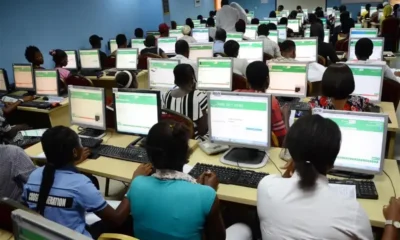
 Education19 hours ago
Education19 hours agoWe have no record of FUTA graduate — JAMB insists






